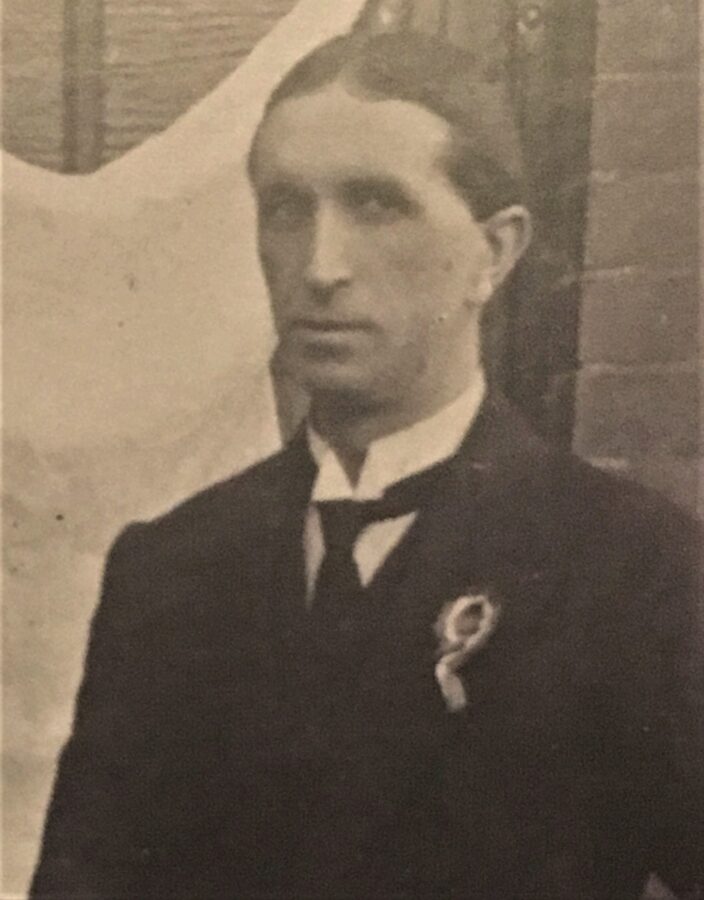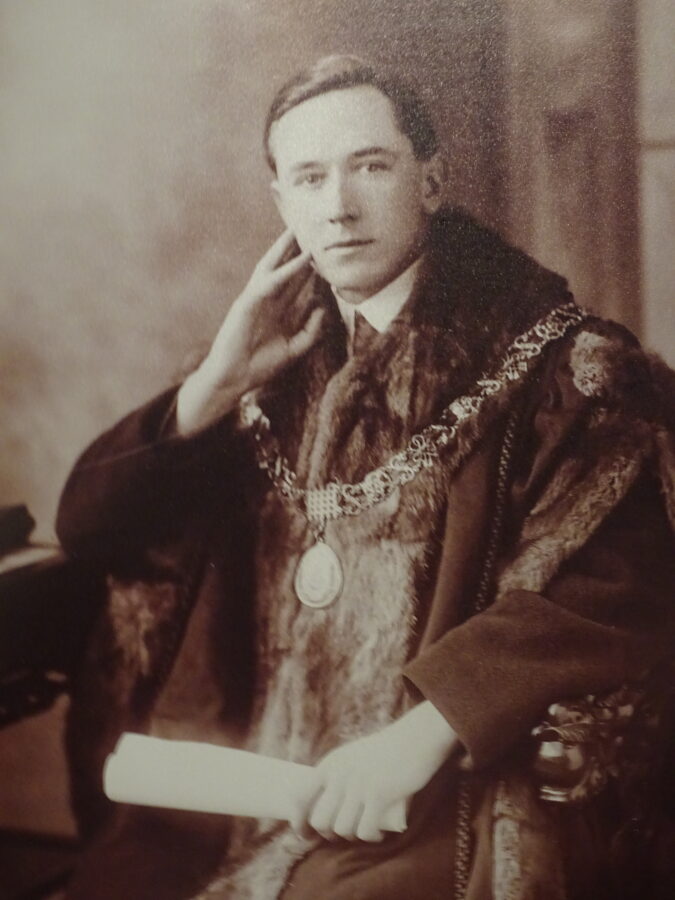
Kieran’s Our City, Our Town Article,
Cork Independent, 6 January 2022
Journeys to a Free State: The Dilemmas of the Treaty
Dáil Éireann resumed its Treaty debate on 3 January 1922 after a short New Year break. A large crowd had assembled at Dublin’s University Buildings, Earlsfort Terrace. A bitterly cold wind was experienced, accompanied at intervals by showers. Inside a range of speakers for and against the Treaty took the floor. On this day, two Cork TDs intervened – J J Walsh, an advocate for the Treaty, and Lord Mayor and TD Donal Óg O’Callaghan, who was an advocate against the Treaty. Both gave extensive and passionate speeches and the detail of these are digitised at www.oireachtas.ie.
On Deputy J J Walsh rising to take the floor, he spoke slowly and often spoke with his back to the reporters. He understood that they were there to express the voice of the people, and as he noted that they were there to represent the “consent of the country” – that they were there to speak about the majority will of the people.
Walsh noted thought he had made it his business to visit his constituents in the interval since they last met. The City of Cork, he believed, which had played an important part in the events of the previous four or five years, were in favour of the ratification of the treaty. He highlighted: “I have not though counted heads, have not taken a vote of the people; I would honestly say I feel that nine-tenths of the people of Cork City were in favour of the ratification”. Walsh continued that he had met prominent people in his constituency who had assured him that “they themselves had not met one single human being in Cork city opposed to the treaty”.
Walsh gave the opinion that those opposed to the Treaty need not necessarily take the oath if they did not want to. He had met several people who said that the Dáil had spent too much time discussing oaths and observed that “the Irish people were thoroughly fed up with this jujitsu exposition of oath ranting of that nature”.
Walsh felt that the public bodies of Ireland wished and desired the common good of the nation. He gave the example of Cork Corporation at the municipal elections of 1920. The public only voted 50% for the Republican candidates – 29 out of 56 candidates. In his estimation, in January 1922 if there was a vote the people of Cork would vote for many more Republican candidates.
Proceeding, JJ Walsh, said that war knew no principle, as those who lived through the previous six years knew. He denoted that the Irish people would not consent to the “resumption of war by anyone standing on the bedrock of our Republic”.
He heard it remarked that the country would be drawn closer to England if the treaty was ratified. He remarked the opposite would happen; “If you got any vision, I see that Ireland will be drawn away from England by virtue of the fact that it would be drawn closer to the universe. Instead of being sheltered off by England, Ireland, by the opening up of its trade routes and inter communication, would come closer in touch with the world”.
The Lord Mayor of Cork, Donal Óg O’Callaghan, also took the floor. He began speaking in Irish and then moved into English. He said that he was not going to appeal to any member of the Dáil to seek to influence the votes of any member of the Dáil. He was concerned only with his own views and vote. He resented what he described as “this series of lectures and appeals to which the hosts have been treated to by both sides”. He deplored the keen differences of opinion and disruption in the assembly and was distraught even more to the spirit in which it had been pursued. He took the view that every member of the Dáil was actuated by desire to do the best in the interest of Ireland, and in the pursuit of the idea of absolute Irish independence.
The Lord Mayor declared though he would be voting against the treaty. “I could not in conscience do anything else in regard to the result of that with regard to the people I represent”. He noted he had the honour for some time to represent the people of Cork in more than one capacity. He represented them as Lord Mayor, chairman of the County Council, and as one of the representatives in the Dáil. He felt that the people did not elect him to any of these positions because of any ability, real or supposed, or because of any statesmanship of his, or because of any political ability. He continued, “they elected me simply and solely because I believe in absolute freedom for Ireland, and because my views on the question are well known. If the people of Cork have since then changed their minds I did not”.
The Lord Mayor – in complete juxtaposition to J J Walsh – maintained the people of Ireland had not changed their minds, but if they have decided – a halt could be made on the treaty path they were now on and a move made onto another path towards, as he observed “the full measure of Irish freedom, entailing as it might still further war and suffering”. He wanted that his constituents – the people of Cork a right to decide. Therefore, he suggested, and he regretted it had not been suggested earlier – that the people of the country have the deciding voice on the treaty. He had no desire to record a vote if the people who had sent them there desired it cast up otherwise, but as he stated; “if a vote were taken I certainly, as an individual, could not cast my vote in any but one way. Then the electors may repudiate my action and recall a replacement. I would be perfectly content to avoid their decision”. He wished to be fair to the members in favour of the treaty – his views were the same as they were when he was elected to the Dáil.
Concluding the Lord Mayor said he regretted the strained feeling, which was visible in the Dáil, and hoped that – “if a vote were to be, and his suggestion for a plebiscite not taken – that the strange bitterness and strange feeling that had so suddenly risen in the Dáil would disappear and that they would all be in friendship once again”.
Happy New Year to all readers of this column.
Missed one of the 51 columns last year, check out the indices at Kieran’s heritage website, www.corkheritage.ie
Captions:
1132a. J J Walsh, 1918 (source: Cork City and County Archives).
1132b. Lord Mayor of Cork Cllr Donal Óg O’Callaghan, 1920 (source: Cork City Council).
